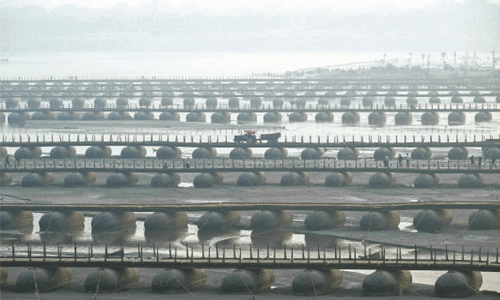IN a country still battling violent extremists that have wreaked havoc on society for the past couple of decades, a recent prison break in Karachi indicates major shortcomings in our counterterrorism apparatus. While it has not yet been determined when the incident occurred as police were informed about it after a considerable delay — a troubling detail in itself — the audacious escape of two allegedly ‘high-profile militants’ from the city’s main jail is alarming. Members of the banned sectarian group Lashkar-i-Jhangvi, the men — who are still under trial — are accused of multiple murders. According to an official from the city’s counterterrorism department, one of them has slain 57 people, while the other had carried out seven targeted killings. As a consequence of the prisoners’ escape, 12 jail officials have been suspended.
It is difficult to overstate the gravity of this security lapse. Some of the most hard-core terrorists in Pakistan are incarcerated within the walls of the Central Prison; it was a given that security measures had to be ironclad. The institution is an obvious target for resourceful militants on the outside seeking to spring their compatriots from behind bars. In October 2014, law-enforcement personnel discovered members of a banned outfit in the process of digging a 45-metre-long tunnel from within a house in a nearby colony towards a prison barracks housing 100 ‘dangerous militants’. The men were only 10 metres from their target when they were apprehended. It was claimed in the aftermath of this incident that security at the prison had been further enhanced. How then have two individuals belonging to one of the most violent extremist groups managed to elude all the measures put in place to keep them under lock and key? Jail personnel have been known to collude with inmates either in return for money or out of fear; that is obviously where the investigation must begin. The delay in reporting the escape also raises questions. In short, every effort must be made to get to the bottom of the incident. There is already far too much evidence that law-enforcement authorities are not as vigilant as they should be about extremist outfits. Consider the fact that a large number of them still maintain a digital presence unhindered, and that the banned sectarian group Ahle Sunnat Wal Jamaat is reportedly operating in rural Sindh under a new name. We simply cannot afford to be lax on this front.
Published in Dawn, June 16th, 2017











































